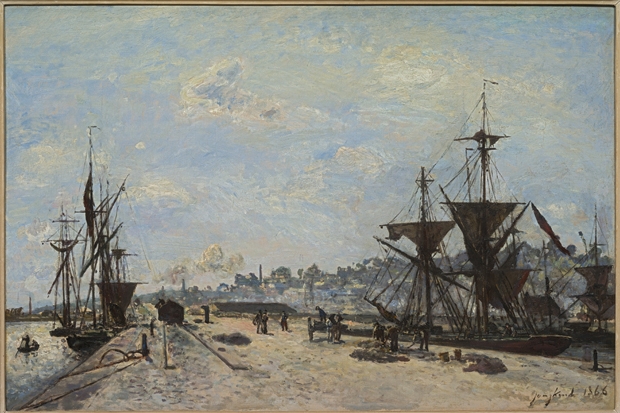Tourists are attracted to queues, art lovers to quietude. So while the mass of Monet fans visiting Paris line up outside the Musée d’Orsay and the Orangerie, connoisseurs head to the Musée Marmottan, an institution so surprisingly little known that it had to rename itself the Musée Marmottan Monet to flag up the fact that it owns the world’s largest collection of Monets. Even so, it remains a haven of peace.
Now, on its 80th anniversary, this discreet museum in a charmingly furnished mansion overlooking the Jardins du Ranelagh is making another bid for attention with an exhibition of 100 rarely seen Impressionist works borrowed from 50 private lenders. The aim of the show is to highlight the contribution of private collectors to art history in a private museum, which — since its opening in 1934 to display its founder Paul Marmottan’s collection of Napoleonic era art and furniture — has copped far more than its fair share of bequests and donations. In 1957, it was given the collection of Dr Georges de Bellio, physician to Manet, Monet, Pissarro, Renoir and Sisley (partly acquired, one suspects, in lieu of payment); then, in 1966, it was left the contents of Monet’s house and studios at Giverny by the artist’s second son Michel. In the 1980s, the Georges Wildenstein collection of manuscript illuminations came its way, followed soon after by the Duhem collection of Impressionist paintings; and finally, in 1996, it scooped the private collection of Berthe Morisot through the gift of her granddaughter-in-law, Annie Rouart.
While paying tribute to collectors as a breed, the Marmottan’s anniversary exhibition makes a special point about Impressionism. Unlike the state-sponsored avant-garde of today, the Impressionists, by breaking with the Salon, cut themselves off from sources of official subsidy.








Comments
Join the debate for just £1 a month
Be part of the conversation with other Spectator readers by getting your first three months for £3.
UNLOCK ACCESS Just £1 a monthAlready a subscriber? Log in